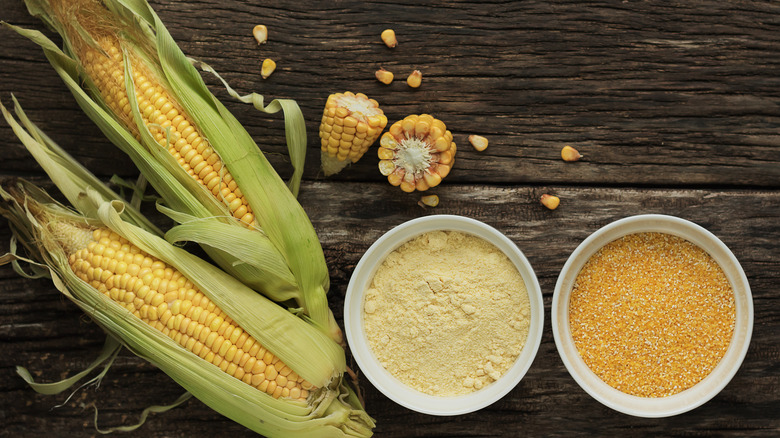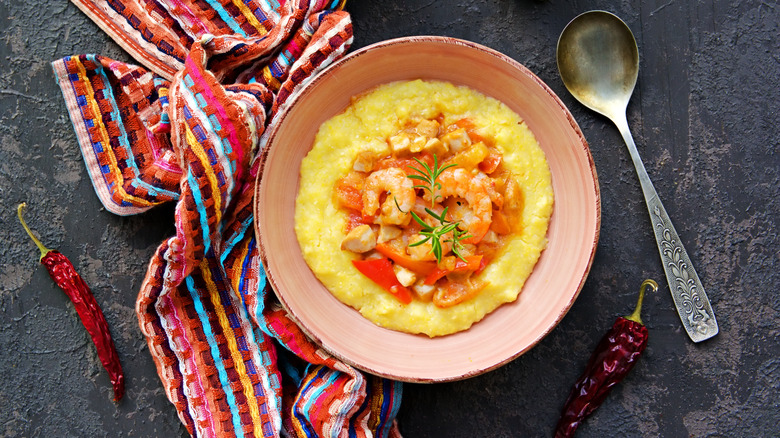Are Grits Good For You?
Grits are a popular Southern dish made from dried, ground corn. Commonly eaten for breakfast or served as a savory side dish at dinner, grits are prepared with water, broth, or milk, and boiled to a porridge-like consistency (via WebMD). Similar to oatmeal, there are four different types of grits: stone-ground, hominy, quick and regular, and instant.
Stone-ground grits are the healthiest and most nutrient-dense form of grits — high in fiber and largely unprocessed. Some call them old fashioned grits. They take longer to cook and have a shorter shelf life.
Hominy grits, on the other hand, are made from corn kernels soaked in an alkali solution (often lye, slaked lime or hardwood ash) in order to soften and remove the hull (the outer shell). Although some nutritional value remains with this process, removing the hull means taking the fiber with it.
Quick and regular grits are finely ground and processed to remove the hull and the germ, which allow the grits to cook more quickly and retain a longer shelf life. Unfortunately, this means that quick and regular grits are less nutritious than stone-ground and hominy grits. Lastly, instant grits are simply precooked and dehydrated grits that can easily be prepared by adding boiling water.
The health benefits of grits
Although stone-ground grits are generally more nutritious since they are less processed and are typically paired with lower-calorie ingredients, all types of grits contain a variety of essential vitamins and minerals. As a result, grits can provide a number of important health benefits (via Healthline). For instance, eating grits can reduce the risk of chronic illness and disease. That's because grits are full of antioxidants that can help protect your cells from damage by fighting off free radicals. This can help reduce the risk of developing heart disease, diabetes, and cancer. Grits also contain the antioxidants lutein and zeaxanthin, which can help prevent the onset of degenerative eye disorders.
In addition, eating grits can help combat anemia. That's because the most common cause of anemia is iron deficiency, and grits are a great source of iron. Just one cup of grits contains 8% of the daily recommended intake of iron.


